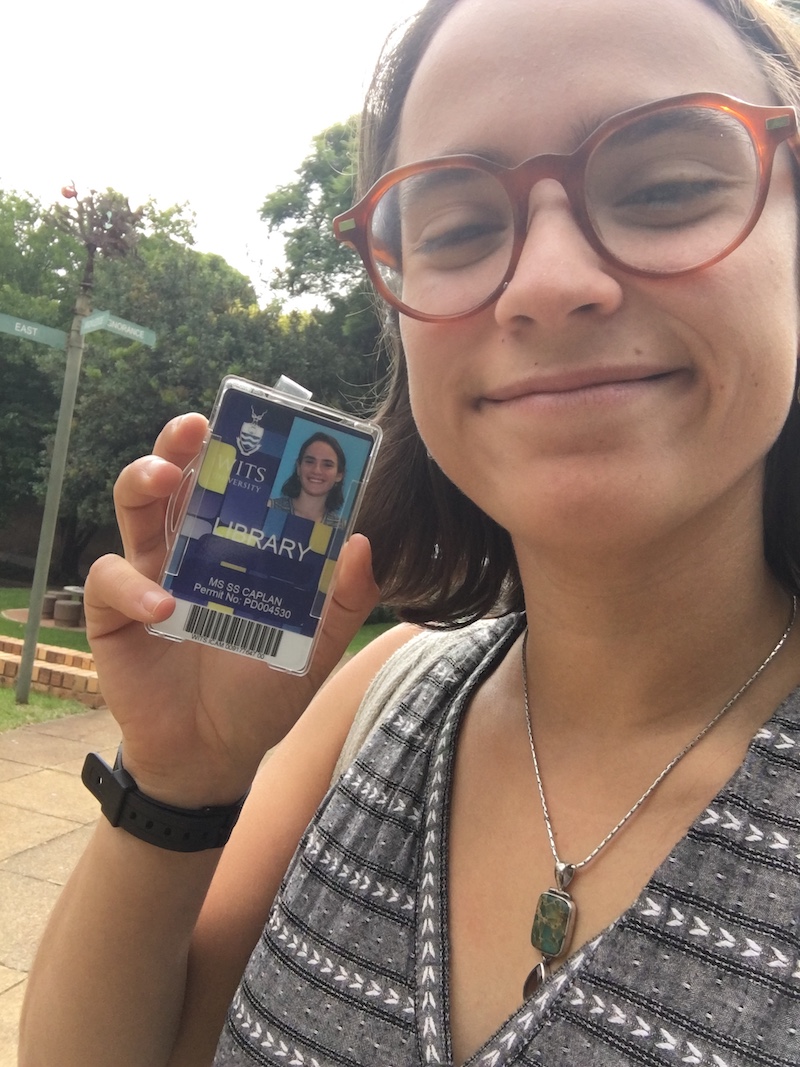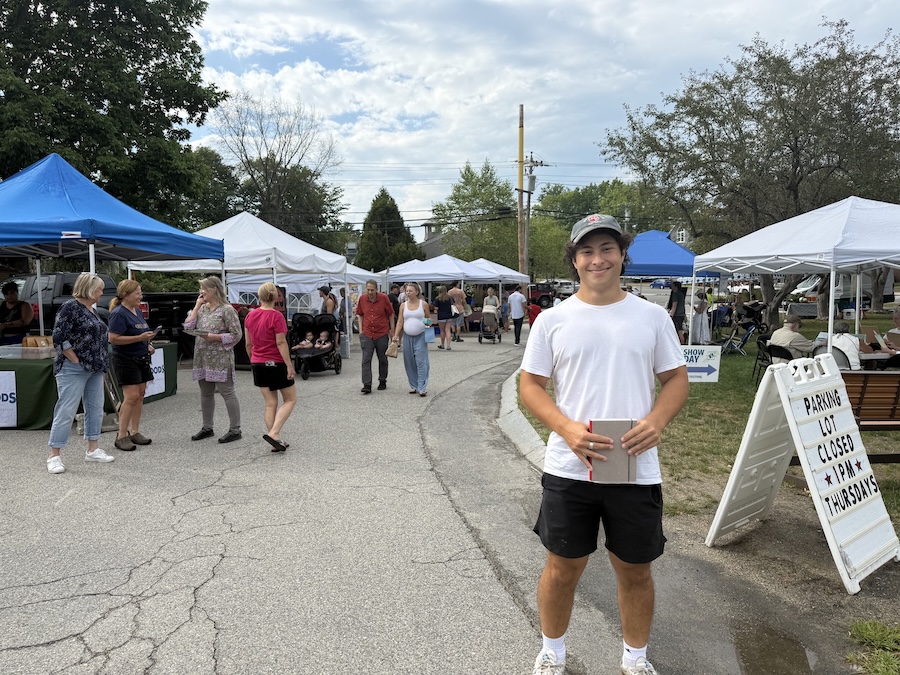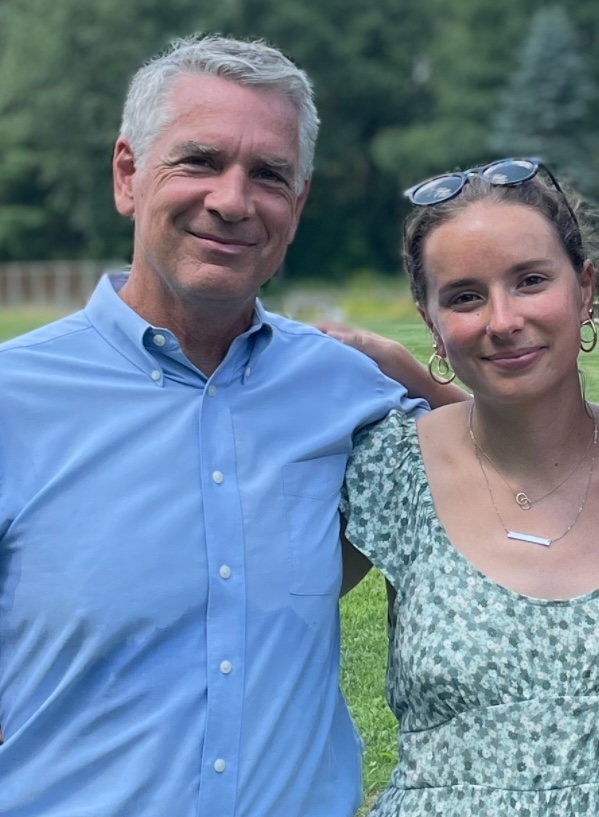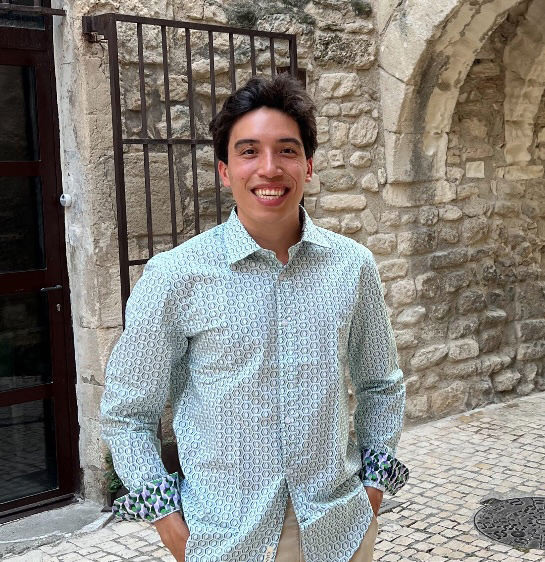How Countries Teach Atrocity: Sara Caplan ’20 Investigates Educational Reform in South Africa
By Rebecca Goldfine
Caplan used her travel grant to spend a week during winter break in Johannesburg, South Africa, searching the archives of the education library at the University of Witwatersrand.
She is investigating post-Apartheid educational reform in South Africa for an independent study advised by Professor of History David Gordon. While her focus is on changes made in the past fifteen years to the national school curriculum—i.e., what the South African government wants students to learn—Caplan's research began from an interest in how countries teach shameful events from their pasts.
"My project started with a much more vague question. I am really fascinated by the idea of how countries teach atrocities they are responsible for, such as how the US teaches slavery or how Germany teaches the Holocaust," she said. "It was a good jumping off point," she added.
As an education and history major who is considering a teaching career, Caplan views education as critical to promoting social progress and dismantling inequalities. "The reason education is the lens through which I look at the aftermath of an atrocity like Apartheid is because I think that education is one of the most—if not the most—powerful tools in overcoming a lot of socioeconomic challenges," she said.
Besides receiving funding from the history department, Sara Caplan also was helped by Bowdoin's connections to the University of Witwatersrand, which every summer sends students to the College to participate in its Mellon Mays Undergraduate Fellowship Program.
Witwatersrand's Mellon Mays coordinator, Nompumelelo Bhengu, put Caplan in touch with university librarians, who initially sent her documents before encouraging her to make the trip to Johannesburg in January to explore their holdings.
After receiving the travel grant, Caplan spent one week researching in the archives. "I can't even describe to you how welcoming people were," she said. "When I got to the library the first day there were piles and piles of documents laid out on a table that people had preselected so I could immediately get to work."
South Africa, moreover, is a fascinating place to explore the role of schools in rehabilitating a traumatized nation, because Apartheid is still such a vivid memory for many. Racist segregation under Apartheid only ended in 1994.
"The US is nowhere near done figuring out how to teach slavery, but it is also in the US's vaguely distant past, versus South Africa, which is very much in the process of figuring out how to create an inclusive, equitable program of study," Caplan said.
In her thesis, Caplan compares the history curriculum taught by public schools during Apartheid with an updated national curriculum implemented in 2005. Called Curriculum 2005, this plan was the country's "first real overhaul to Apartheid-era courses," Caplan said. "Everything before that was amendments to and eradications of racist language."
During Apartheid, history was taught in a way that reinforced "the power of colonizers and the white population of South Africa," and portrayed black South African history in a "dismissive and dehumanizing way," according to Caplan.
Yet, in its effort to excise any language of oppression, the country in 2005 also wiped out the teaching of history almost entirely.
"History is gone as a subject," Caplan said. In the hundreds and hundreds of pages of Curriculum 2005, there is just a page and a half of content that has to do with Apartheid, Caplan discovered. This act of compensation, she argues, is due to the way many South Africans equate the telling of history with racist narratives.
Additionally, the modernized curriculum makes short-shrift of history because it focuses on developing skills and abilities—like math and science—that the government considers necessary for black South Africans to compete in the country's labor market and the global economy.
Though she, of course, loves and values history, Caplan underscores how quickly the study of the past gets shunted aside by this kind of economic argument. "History isn't directly or easily translatable to real-world applications in terms of economic viability," she said.
Also lost in the South African curriculum reform is consideration for the everyday lives of teachers and students, Caplan added.
"This is one of my main arguments: A lot of the initial structures and philosophies for educational reform that South African activists vouched for during Apartheid were in many ways political tools for these groups to push their political, societal visions" for a more democratic, equitable, and transparent society, she said.
"The philosophy around educational reform was built for larger societal initiatives, as opposed to what you might think would be at the forefront of those improvements, which is how to change the day-to-day experiences of students for the better," she said. Thrown to the wayside, for example, are concerns about equipping schools with books or ensuring teachers have appropriate training and credentials.
As she thinks about her own possible career path in education—whether it be teaching in a school or working in educational policy—Caplan said it is important to her to experience life in a public school. Growing up, she attended private schools in New York City.
"I am firm believer that the people who determine what policy looks like, especially in the world of education, be people who know how it is implemented," she said.
The Nyhus grants—given out in mini, small, and large allotments—are awarded to a handful of upperclass students each year to help them access primary sources for independent history research.
This January, one junior and four seniors besides Sara Caplan received grants of $4,000 each to travel to destinations around the world.
Alexander Kogan ’20 traveled to Washington, DC, New York City, and Boston, to study how the Holocaust is memorialized in different US sites.
Helen Wang ’20 visited the Qian Xuesen Library & Museum in Shanghai to research the identity and legacy of Qian Xuesen, a Chinese aerospace scientist who was instrumental in the development of China’s nuclear weapons, missile, and space programs in the 1950s and 1960s.
Faria Nasruddin ’20 explored the National Archives and the British Library in London to conduct primary source research for an honors project on the post-indenture experience of East Indians in the Caribbean.
Joseph Hilleary ’20 spent two weeks researching at the library of The Tangier American Legation Institute for Moroccan Studies in Tangier to review nineteenth-century European travelogues and diplomatic dispatches from the American consul general on the state of affairs in Morocco.
Lucy Ryan ’19 visited the Canadian Museum for Human Rights in Winnipeg, Manitoba, to aid her independent study on human rights museums and the role they play in activism.



